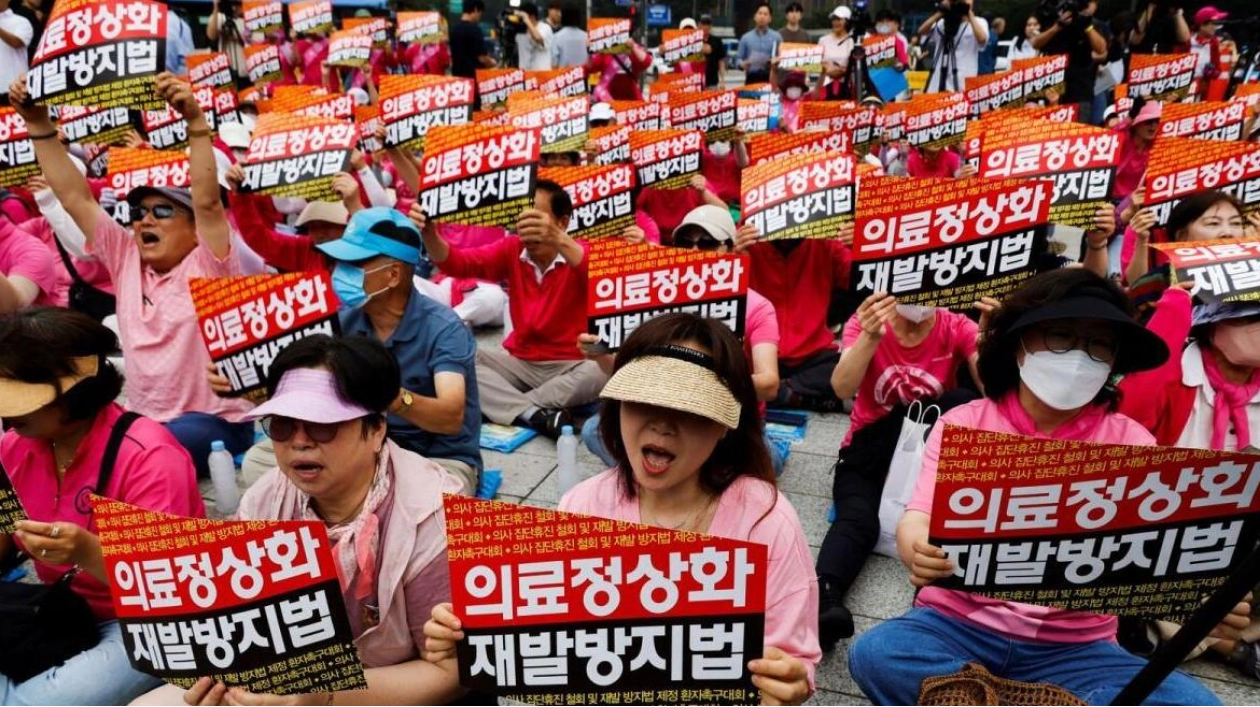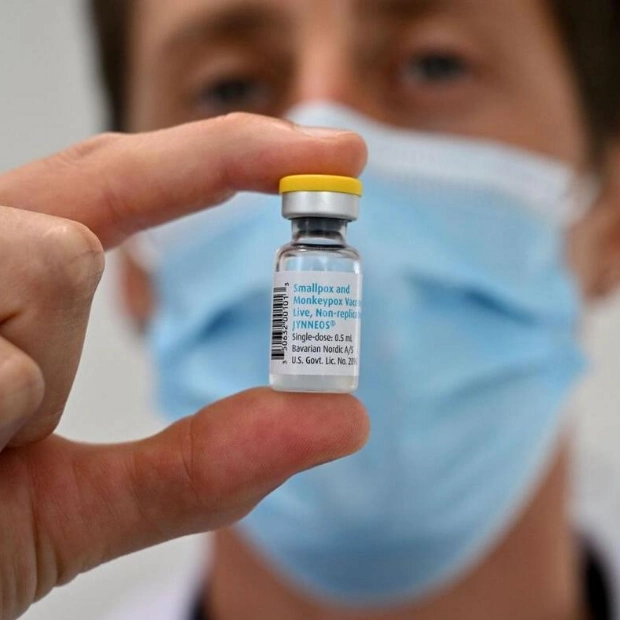South Korea announced on Monday that it would abandon its plan to revoke the licenses of trainee doctors who went on strike, marking a concession aimed at ending a prolonged walkout triggered by the government's move to expand medical school enrollment.
In February, thousands of trainee doctors, including medical interns and residents, ceased work, compelling major hospitals to reduce non-emergency services and redirect patients from emergency rooms. Health Minister Cho Kyoo-hong stated that the government has opted not to suspend the licenses of the striking doctors, regardless of whether they resume work.
Cho emphasized that withdrawing the threat of punitive measures was crucial, as resolving the current medical service shortage is deemed 'more pressing'. Over two-thirds of the nation's interns and resident doctors have joined the strike in opposition to the government's plan to increase annual medical school admissions by 2,000 students, in an effort to tackle a reported doctor shortage.
The protesting young doctors argue that the government should prioritize improving pay and working conditions before expanding the physician workforce. Cho further noted that the government is committed to establishing a 'sustainable' medical system that does not overburden trainee doctors.
'Trainee doctors, do not delay any further, and summon the courage to decide. The government will ensure that you, our valuable assets who have chosen essential medical care despite challenging conditions, can concentrate on your training without concern,' Cho declared during a briefing.
The minister also urged the trainee doctors to return to work and engage in dialogue to address their working conditions and discuss the medical college admission quotas for 2026 and subsequent years.






